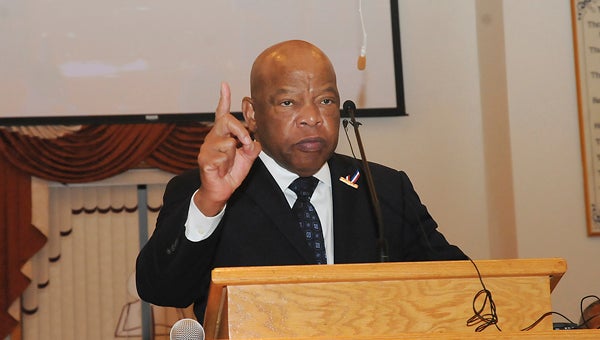Chestnut weighs in on question of voting districts
Published 3:59 pm Friday, November 15, 2019
As voters and leaders across the state wait for a ruling in a recently-concluded federal gerrymandering trial, which put the question of whether or not Alabama should have a second majority-minority congressional district front and center, Alabama Rep. Prince Chestnut, D-Selma, sees serious implications for Alabama voters no matter which way the decision goes.
According to Chestnut, the eight plaintiffs in the case filed suit against Alabama Secretary of State John Merrill, alleging that Section 2 of the Voting Rights Act had been violated when congressional district maps were redrawn.
“The applicable sections prohibits any ‘standard, practice or procedure’ that ‘results in a denial or abridgment of the rights of any citizen of the United States to vote on account of race or color’ and the plaintiffs allege that minority voters have their votes diluted because the political processes are not equally open to minority voters, in that they have less of an opportunity to elect the candidates of their choice,” Chestnut said. “Apparently, a redistricting reform organization provided the legal support for the suit. The plaintiffs essentially asked the judge to declare the mapmakers for the prevailing side of the Alabama Legislature in 2011 packed the 7th Congressional District with minority voters and then separated other minority voters throughout three other congressional districts.”
Chestnut noted that the minority population in Alabama represents a quarter of the state’s total population, yet minorities only have representation in roughly 14 percent of congressional seats – a second district would mean that minority representation would be around 28 percent, a more accurate reflection of Alabama’s electorate.
“A second majority-minority district would have the effect of more people in Alabama having representation that is more congruent with their beliefs and ideals,” Chestnut said.
Conversely, Chestnut sees negative consequences if the court ultimately rules against the plaintiffs.
“The implications of an adverse ruling would be an affront to the U.S. Constitution,” Chestnut said. “Because the representation in the state does not fairly and adequately represent the fullness of diversity in the state.”
Gerrymanders is a process by which the boundaries of electoral districts are manipulated to favor one political party over another and Chestnut believes the practice has yielded nothing but undesirable results for American voters.
“Gerrymandering has impacted voters and our society in a negative way,” Chestnut said. “In fact, it has been bad for the country. Gerrymandering is a response by those who resist change and wish to suppress minority voices and opinions and merely allow the same old, intolerant voices and opinions to dominate the public square. From [its] inception, gerrymandering was and is about restricting and suffocating the progress of Americans who merely desire to be free, where their ancestors were not, in this country that we all love.”
Chestnut added that the variety of views that make up the American mindset should all have a place in the nation’s voting process.
“It is important to have proper representation for different perspectives,” Chestnut said. “This world no longer operates on a small, parochial, geographical level – we live in a world that is full of cultural richness.”



